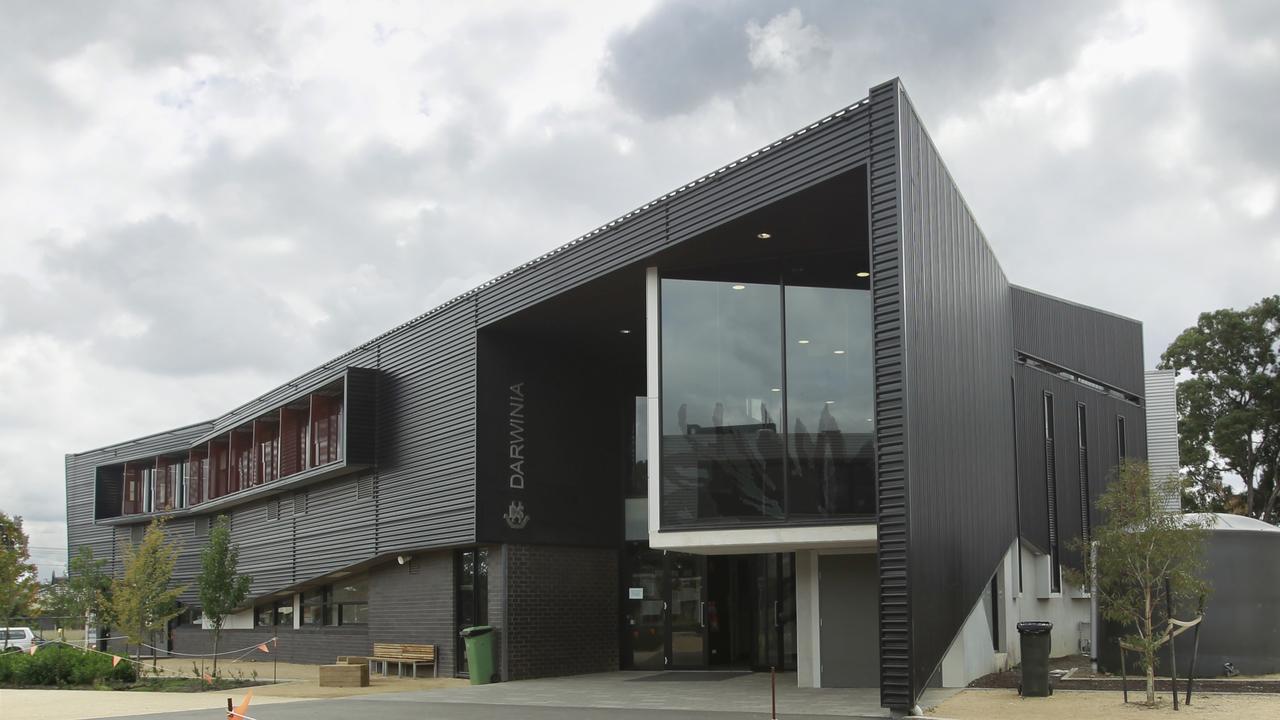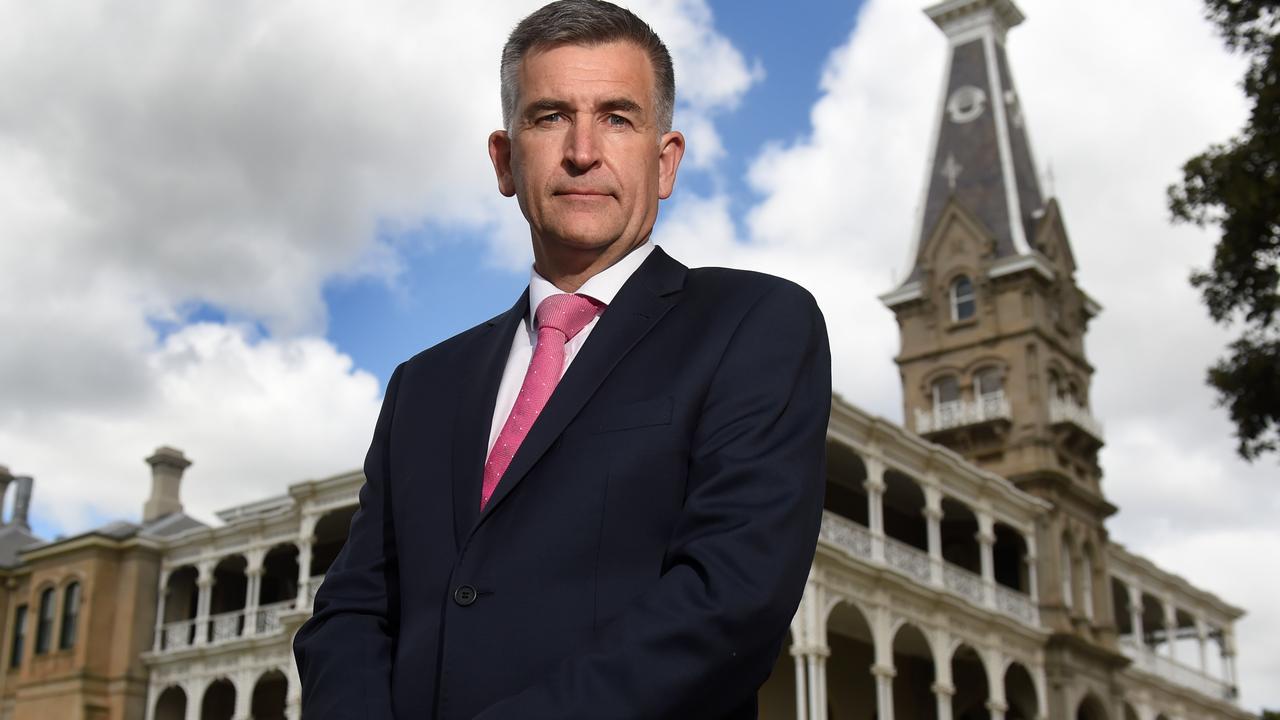Students put their finger on an end to banking fraud
Melbourne students behind a patented fingerprint security system, which could be a game changer in the fight against EFTPOS cybercrime, already have interest from the American banking industry about selling their innovation.
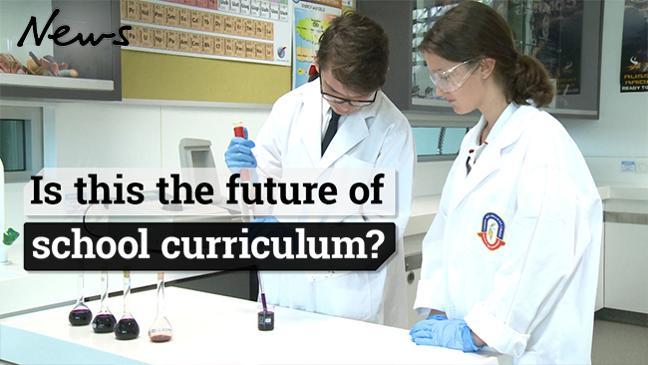
VCE
Don't miss out on the headlines from VCE . Followed categories will be added to My News.
Meet the three Melbourne students who may have the answer to EFTPOS machine cyber crime at their finger tips.
The Knox School trio has patented fingerprint security for machines which has earned them a berth to NASA where they competed against students from around the world in The Conrad Challenge Innovation Summit, winning their cyber-technology and security challenge at the Kennedy Space Centre.
MORE: SCHOOL TELLS UBER EATS TO GET ON ITS BIKE
SCHOOL BANS PHONES AFTER VIDEOS GO VIRAL
Known as the Falcon StartUps, the Wantirna students — Victoria Caetano, Mitchell Phelan and Bhavesh Kapadia — developed PadPay, an EFTPOS machine incorporating a biometric security device of a fingerprint scanner to protect customer data.
It has the potential to be a game changer, meaning stolen bank cards will not be able to be used as the machine will require the fingerprint of the account holder.
Just months into their final VCE year, the group went to the summit hoping to licence the product to a technology company which will develop, manufacture, market and distribute PadPay.
“Tori, Mitchell and Bhavesh were brilliant. They delivered a confident speech and picked up an American contact that works in the banking sector who approached them,” The Knox School’s entrepreneurship educator Michelle Mitchell.
The Conrad Challenge is named after Apollo 12 astronaut Charles Conrad.
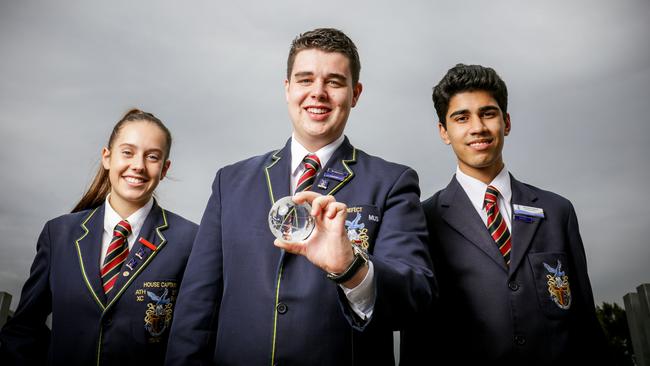
Ms Mitchell said PadPay came about through the students’ interest in technology and cyber security.
“The students wanted to create a product that made a difference worldwide and, being keen on technology, they were well aware of the rising global issue of bank account theft and cybercrime being perpetrated and the costs,” she said.
The Knox School team outdid teams from more than 100 schools around Australia to win their ticket to the US.
Team member Mitchell Phelan said they started working on the project last year while they were in Year 11.
“We tossed around ideas on how to create a more secure payment method for goods and services on a day-to-day basis and came up with PadPay, which is a more streamlined and
secure product than has appeared on the market before,” he said.
He said they started developing PadPay as an extra curricular interest but disciplines around it tapped into their VCE subjects.
“We did a bit of research and looked at how we could make the EFTPOS machine more secure with a fingerprint which is used on an iPhone,” he said.
He said they consulted widely with industry and a big company which was a potential user to assess the need for the innovation.
Team member Bhavesh Kapadia said they had already gained enormous knowledge getting PadPay to this stage and looked forward to learning more.
As part of the national prize, all three students have been offered a scholarship to Clarkson
University, in New York, valued at $12,000, which will be one option for their post-VCE studies.
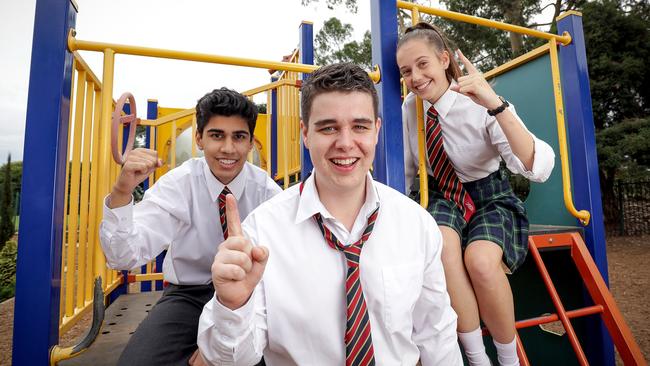
Ms Mitchell said the school was attracted to the Conrad Challenge because it is based on finding science and technology-based solutions to real-world problems.
“The reality of the challenge is what attracted the school to the idea of competing in the first place,” she said.
“Many other competitions are based on fictional case studies or entrepreneurial activities that remain school-based, such as cupcake stalls during lunch times,” she said.
“The Conrad Challenge is based on real-world problems that need to be solved with real-world solutions,” she said.
The Knox School team competed against six other schools from around the world in the cyber-technology category. PadPay has an IP Australian patent which was sufficient for their entry into the Conrad Challenge.

